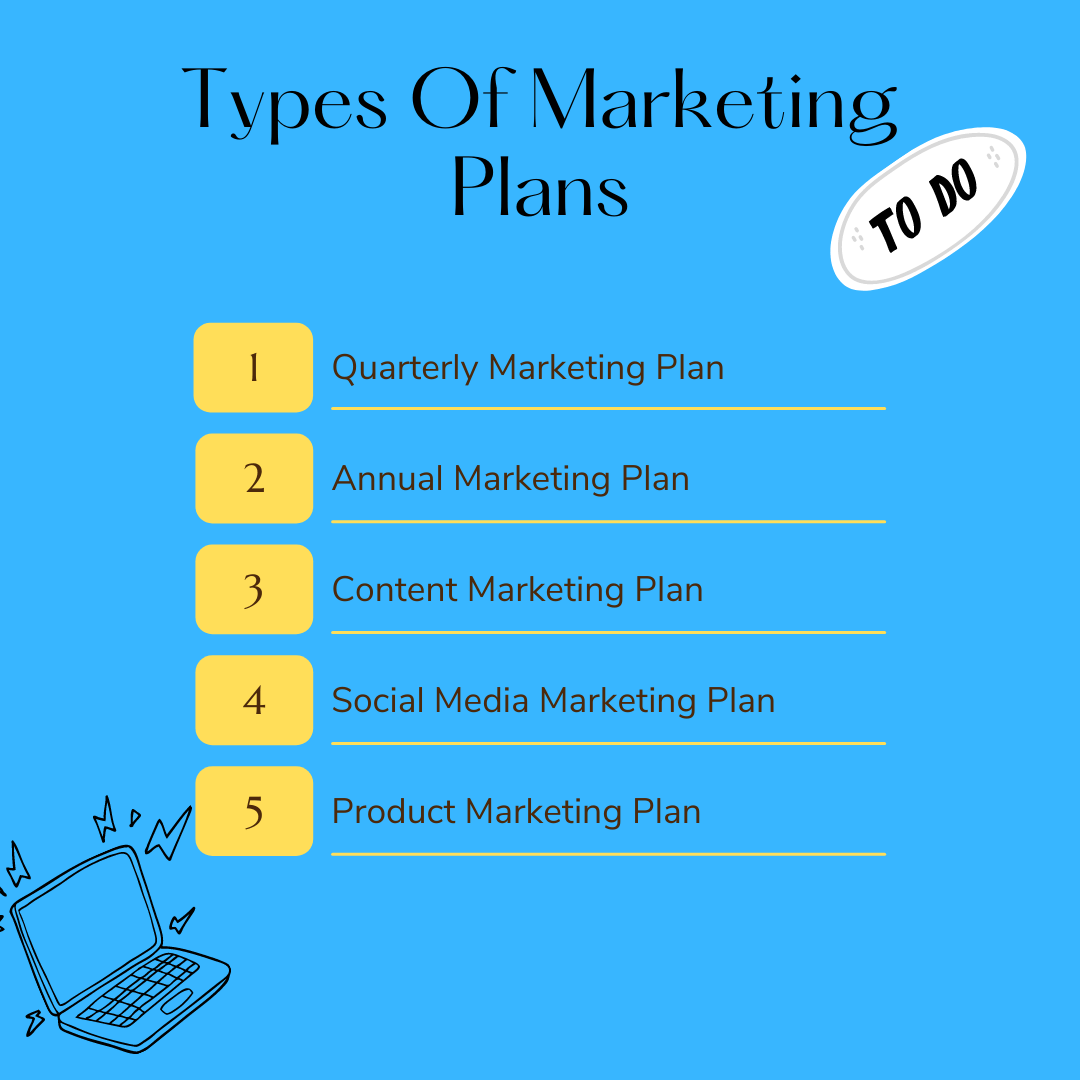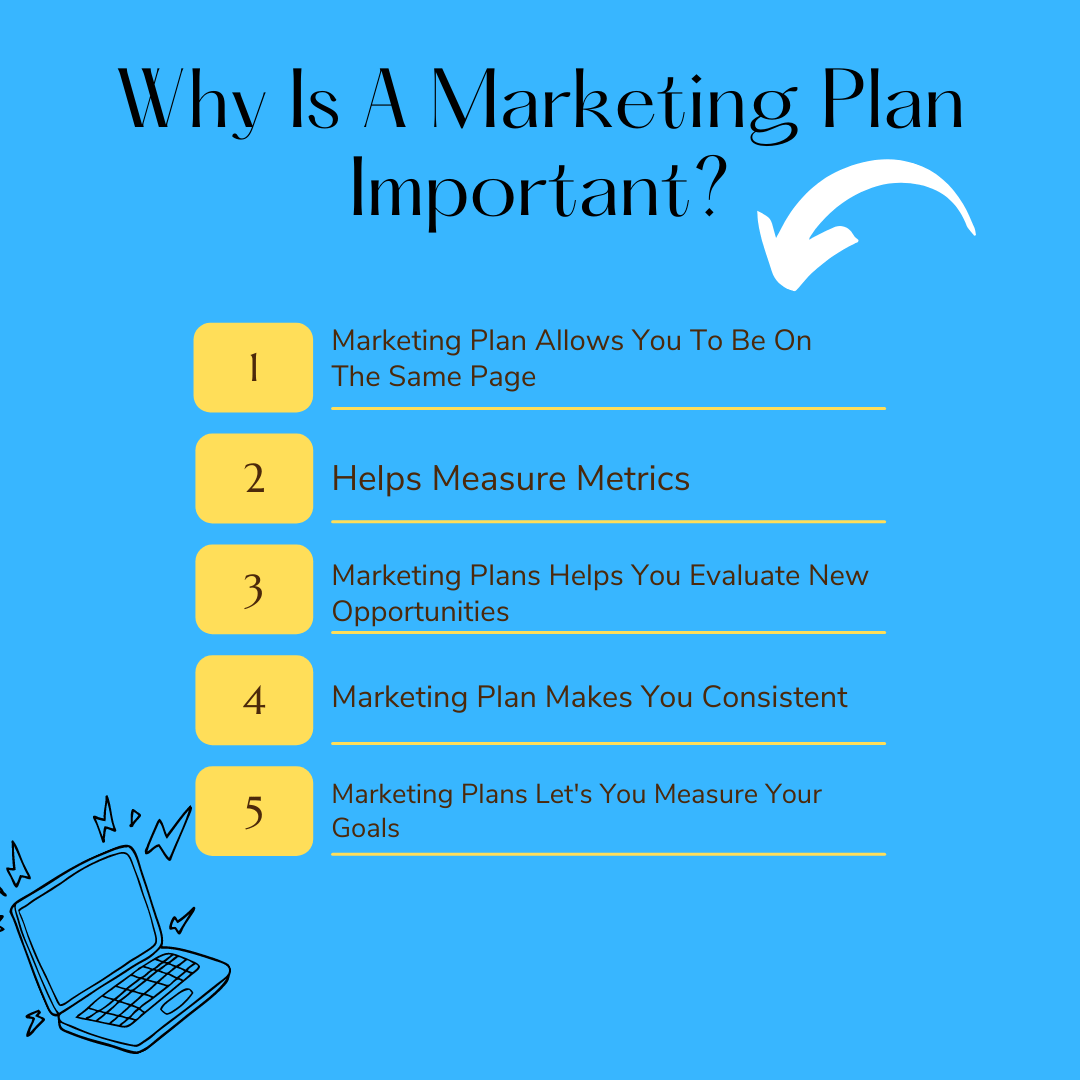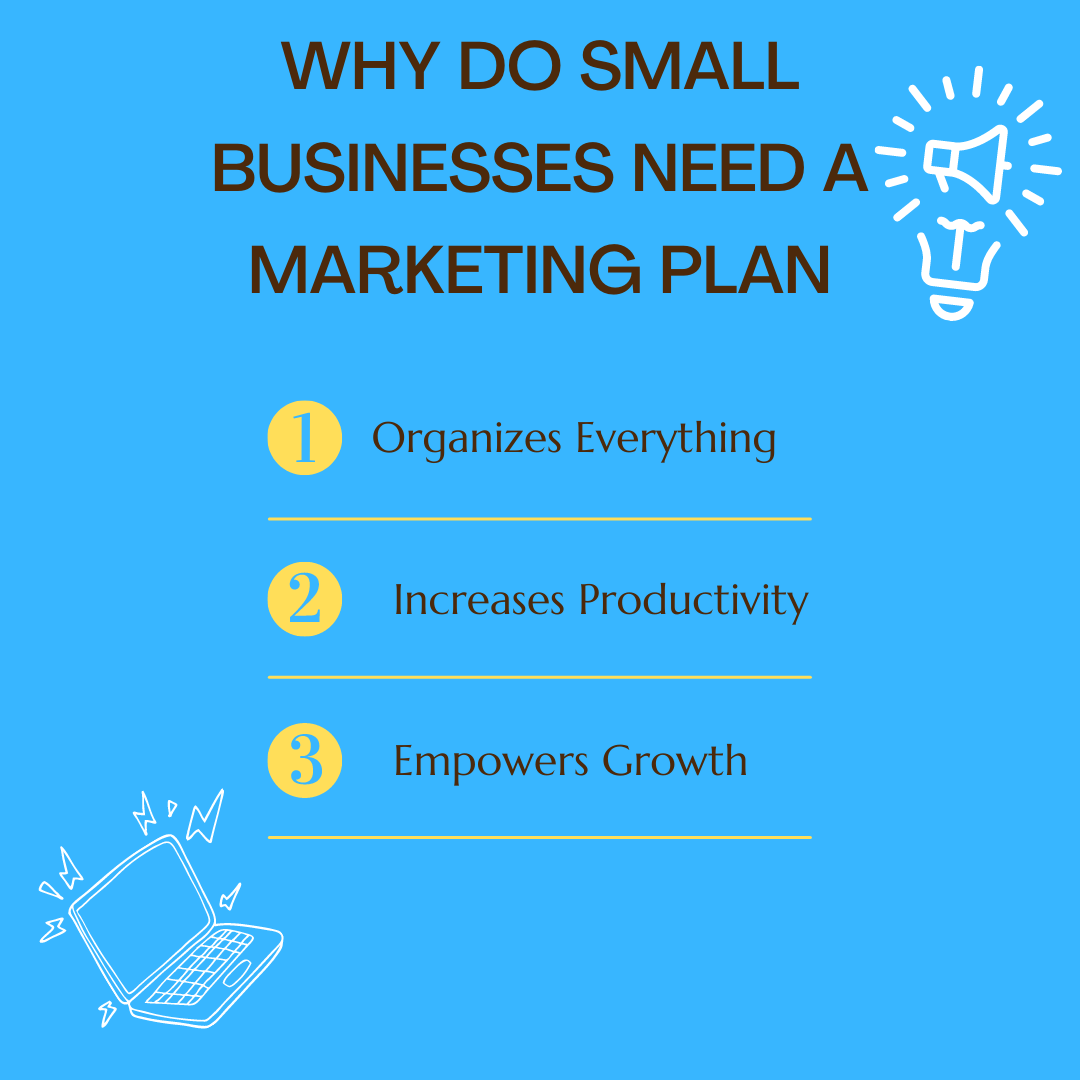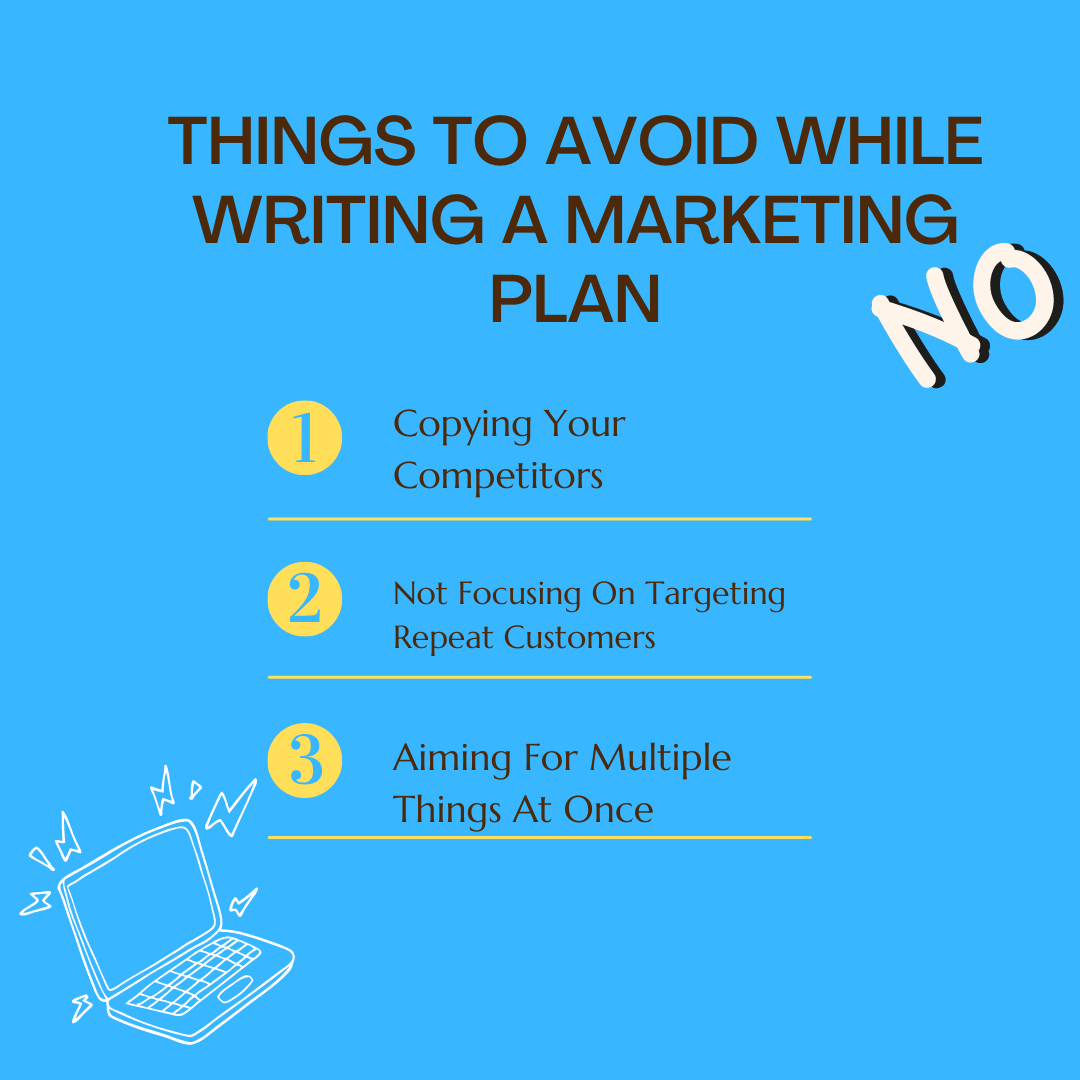For every business, no matter big or small, marketing plays a very crucial role. And why not? Marketing has many benefits. It helps with brand awareness, educating your customers, and impacts your business’s bottom line. According to the Sales Benchmark Index, marketing contributes approximately 15-30 % of revenue to net-new customers. Now the question arises: How can a business make the most of its marketing? Well, it all begins with creating a solid marketing plan.
Creating an annual marketing plan helps to align your marketing activities with your business goals and achieve them. Think of it as a roadmap that guides you towards your business’s goals, campaigns, and growth.
Without a proper marketing plan, promoting a business can easily become a waste of money, time, and energy. If you don’t have a marketing plan, it’ll become practically hard to put a finger on how much money you need to spend for promoting projects, recruiting, and outsourcing for a year.
Don’t know what a marketing plan is? The below guide will help you understand the basics of a marketing plan, why it is important, and how to structure one for your business.
What Is A Marketing Plan?
Many marketers believe in a saying, “If you don’t know where you’re going, any road will take you there.” Without proper planning and a sound strategy, you will just be randomly wandering without having a fixed destination in mind.
As mentioned above, a marketing plan acts as a roadmap that outlines activities your business is thriving to achieve. A marketing plan mentions every step you need to take to reach your destination (read business goals). When it comes to marketing, there is no lack of great ideas and concepts. A marketing plan gives a framework that helps you use these ideas and concepts effectively, which can bear results and get the job done.
Based on what you’re trying to accomplish with your marketing, your timeline, and what facets of marketing you’re implementing, you’ll have to create a different marketing plan. Here are some examples of various types of marketing plans.

Types Of Marketing Plans
1. Quarterly Marketing Plan
A quarterly marketing plan, also known as a 90-day marketing roadmap, is created to achieve specific marketing goals within a 90-day time frame. The benefits of a quarterly marketing plan include:
● Productivity: The streamlined 90-day marketing tasks motivate teams to achieve specific marketing goals within that period, which results in increased productivity.
● Focus: Having a reasonable amount of activities can improve individual and team concentration, which boosts productivity.
● Provides Insight: Real-time data informs you whether your marketing objectives are within target, allowing you to make necessary changes.
2. Annual Marketing Plan
An annual marketing plan is very similar to a quarterly marketing plan. The only difference between the two is that the yearly marketing plan lists down the marketing activities for the whole year. The benefits include:
● Sets long-goals: With an annual marketing plan, a business can streamline marketing goals for the year.
● Balanced: Having an annual marketing plan will set a roadmap for you to follow and restrict you from getting sidetracked.
● Measurements: An annual marketing plan allows you to measure your business’s growth through various marketing activities.
3. Content Marketing Plan
As the name suggests, a content marketing plan is a plan dedicated to various content-related activities a business implements. It includes everything from SEO research, engagement tracking, blogging, and white paper writing. The 3 main steps of a content marketing plan are:
● Increases Creativity: With a proper content marketing plan, people know exactly what they have to achieve, which allows them to brainstorm various ideas that can enable them to create and implement an innovative and creative strategy.
● Figure out content types: The next is to figure out the content you will create. It can include blog posts, videos content, etc.
● Establish your KPIs: KPI stands for Key Performance indicators that allow you to specify and measure specific goals related to your content marketing plan.
4. Social Media Marketing Plan
A social media marketing plan comprises all your social media activities and a summary of the goals you plan to achieve with it. It directs your actions and lets you know whether you’re rising or falling. Social media marketing helps you with:
● Increasing brand awareness.
● Targetting end users.
● Building networks and communities.
● Engaging with your customers.
5. Product Marketing Plan
A product marketing plan has a primary objective of marketing various products a business offers to its target audience. It helps develop strategies and activities required to create awareness about a particular product discovered by the end-users. Product marketing is a foundation built on pricing, distribution, and promotional decisions. The 3 main objectives of a product marketing plan are:
● Increasing sales.
● Increasing awareness.
● Communicating about new product launches.
Each marketing plan includes different marketing strategies, but it all boils down to achieving the same business goals.
The main idea behind creating a marketing plan is to write down and organize your marketing goals and strategies.
While writing a marketing plan, keep in mind your business’s objectives, customer personas, budget, and deliverables for each campaign. With all this information in one place, it’ll become easier for you to track your campaign and measure the effectiveness of your marketing plans.
Why Is A Marketing Plan Important?
Having a structured marketing plan can make sales easier for a business owner. You reduce the cost of marketing by targeting your buyers thoughtfully and effectively. It also increases the chances of converting leads into sales. Communicating about your business and how your customers can benefit from it will help you identify your customers’ wants and what pushes them to make the final purchase decision.
When your marketing plan harmonizes with your business strategy- that’s where things start to take shape. Every specific task you put effort into starts to contribute to the bigger picture of business growth and begins to generate significant returns on investment made.
Not just these, having a structured marketing plan has lots of benefits. Here is a list of 5 reasons why a marketing plan is essential and effective for any business.

5 Reasons Why A Marketing Plan Is Essential For Every Business
1. Marketing Plan Allows You To Be On The Same Page
Having a detailed marketing plan which everyone can refer to allows everyone to be on the same page and comprehend the ultimate goal and everyday activities. It will enable everyone to do their own thing, divide the work accordingly and focus their efforts on shared objectives.
Having everyone on the same page helps simplify the marketing procedures and run them smoothly. It also implies that even when people leave your company, you don’t lose knowledge or focus.
2. Helps Measure Metrics
What is the point of having marketing unless it generates more money for the company than it costs? A marketing plan accompanies a marketing strategy to yield a positive investment return from your total marketing expenditure. With a marketing plan in place, you can track, test, and measure metrics over a while.
Let’s take, for example; your current marketing focus is to increase your website’s ranking using an SEO strategy. Suppose you know this is your primary goal at the time. In that case, it will be easy to assess indications such as how much traffic your website receives, Google ranks, and online inquiry levels to determine if your marketing approach is working.
The example above may be utilized in several marketing activities, providing total transparency into how each of your marketing activities is operating and its overall contribution to your company’s overarching aim.
3. Marketing Plans Helps You Evaluate New Opportunities
A marketing plan makes it easy to look at new prospects and decide what step to take next. Do those fresh new opportunities contribute to your overall marketing goal and plan? If yes, they could be worth examining. If not, you can walk away from them and save them for the future. With a detailed marketing plan, you can select the best option that meets your overall marketing requirements while also exploring new opportunities.
4. Marketing Plan Makes You Consistent
Businesses that lack a defined marketing plan and promote their services and products haphazardly realize that they only focus on marketing when they desperately need to increase their sales.
Typically, there is a spike in their marketing efforts which results in getting some new clients. But, with no strategy and limited resources, they shift their focus on fulfilling the needs and demands of the newly found clients, making their marketing come to a sudden halt.
It results in sloppy marketing activities, which leads to disturbed sales. Creating a marketing plan gives you a solid foundation that can help your business expand, make investments more accessible, and allocate dedicated resources to all marketing activities. A marketing plan also leads to consistency in leads and sales.
All a “stop-start” marketing approach accomplishes is to create a reactive atmosphere in which decisions are made based on intuition or an impulse.
5. Marketing Plans Let’s You Measure Your Goals
With a marketing plan, you get a framework to assess your progress. You can compare your achievements with your outlined marketing plan, which allows you to re-evaluate and modify your marketing strategy. A solid marketing plan will enable you to prepare for business success by examining every tactic and move you take.

How To Structure An Effective Marketing Plan
It can be challenging to develop a marketing plan if you haven’t done it before. There are many things to consider, and it can get muddled at times. So let’s take it step by step and understand how to structure a marketing plan effectively in the 5 steps mentioned below.
1. Determine Your Business Goals And Budgets
Before you dive into the planning and implementation part, you should consider your company’s goals for the following 1-3 years. Your objectives could be focused internally, externally, or a combination of the two.
When setting goals and objectives, build a SMART framework that guarantees accountability and transparency. SMART is an acronym for:
● Specific: Your purpose should be clear and defined to focus your efforts and feel driven to accomplish it.
● Measurable: It’s vital to set quantifiable objectives, so you can track your progress and stay motivated. Analyzing your progress will allow you to stay focused, fulfill goals, and experience the pleasure of getting closer to your objectives.
● Attainable: Your goals must also be realistic and achievable. In other words, it should be challenging while remaining attainable.
● Realistic: This step ensures that your objective is aligned with other relevant goals.
● Time-bound: Every goal requires a target date so that you have a deadline to strive toward and something to focus on.
2. Analyze Your Competition
The next step after determining your budget and goals is to review your competitive atmosphere. To build a strong marketing plan, you need to study your competitors in-depth, identify their marketing strategies and figure out their strengths and weakness.
When you understand your competitors, you can use that knowledge to build your marketing campaigns to help you stay one step ahead of them.
3. Do A SWOT Analysis
You want marketing that generates high-quality leads that fuel new sales possibilities and stimulate growth. You want your potential audience to be satisfied and look forward to hearing from you and not despise it. You also have a restricted budget and resources.
The ideal way to achieve this is to use an innovative marketing approach to effectively build and execute your marketing plan and sync your business goals. What you need to start with is a SWOT analysis. Now, what is a SWOT analysis? SWOT stands for strengths, weaknesses, opportunities, and threats. It means to document your business’s strengths, weaknesses,
opportunities, and threats, keeping in mind your competitive position, target audience, target market, current stage, partners, etc.
4. Define Your Strategies And Tactics
Strategies and tactics are the cruces of a marketing plan. All the strategies you design after evaluating every piece of information, from your company’s position to competition analysis, will be employed in promoting and increasing revenue by a specific amount within a particular time frame.
All these strategies will focus on achieving one primary marketing goal. With all these in place, businesses need to determine the tactics required to fulfil these strategies. It includes using various advertising and promotional techniques to get the word out there.
These strategies and techniques will organically develop over time as businesses achieve their objectives and learn what works and what doesn’t for their marketing.
5. Evaluate Your Marketing Plan
You won’t figure out if your marketing plan and strategies are practical and working if you don’t instil some evaluation. Marketing evaluation may take several shapes. Some marketing evaluation methods are pretty straightforward, allowing businesses to evaluate real-time data, demonstrating how effective their marketing campaign is. At the same time, others take time to show results.
The idea is that it’s critical to go through each plan and strategy and identify the best ways to evaluate them for effectiveness, even if the methods aren’t flawless.

Why Do Small Businesses Need A Marketing Plan
Moving forward, a lot of people are confused about whether small businesses need a marketing plan too? The answer is pretty straightforward, Yes!
Being a small business owner, you have a lot on your plate, and your multitasking every time. Since you’re busy as a beaver all the time, there might be times when you overlook specific tasks because you so so immersed in others. It can also be due to not having a strategic plan or a particular goal. According to Smart Insights, 49% of organizations don’t have clear marketing strategies, which means they are marketing their small business in the dark.
A defined marketing plan works as the heart of your small business. Here are 3 significant reasons why any small business needs to prepare a marketing plan.
1. Organizes Everything
As mentioned earlier, with a marketing plan, you can sync your business goals and your marketing activities together. As a small business owner, chances are you work with a small team that handles various tasks simultaneously. Having a plan that organizes everything rather than scattering it all is a much better alternative.
Remember marketing your small business is all about teamwork. With proper strategies, tactics, aims, and goals, you can have a blueprint that’ll make your teams play to win.
2. Increases Productivity
Without a proper plan in place, neither you nor your team would know what you are doing. You’ll just keep kicking left, right, and centre without knowing what would be the result of your actions. It might result in a lot of confusion, conflicts, and lack of motivation since no one would know what they’re doing.
With a marketing plan, you have a structured outline of what you are supposed to do, how you should do it, and when you should implement it. It results in everyone understanding their jobs and knowing what they should focus on. It further motivates people in your company to work and increases productivity which creates effective results.
3. Empowers Growth
Last but not least, a good marketing plan fosters good marketing activities, which eventually lead to the growth of your small business. Without a marketing plan, you get trapped in a vicious circle.
You might be able to attract new customers, increase sales initially with your unsystematic marketing activities. Still, the moment you shift your focus away, you won’t be able to engage with those customers, and they’ll eventually leave.
You can keep your business running this way, but it will hamper your business growth, and you will find yourself running without moving forward.
On the other hand, a strong marketing plan will keep your marketing activities consistent fostering growth.
There you have it, 3 primary reasons why your small business needs a marketing plan. Now, let’s look into the things you should avoid while writing a marketing plan.

Things To Avoid While Writing A Marketing Plan
1. Copying Your Competitors
While it is essential to analyze your competitors to understand the market better, you don’t have to do the same thing they are doing. Thinking that something that worked for them will work for you is not the right way to go about marketing. As a business, you should develop your own Unique Selling Proposition (USP) and tell your audience how your brand is different from your competitors.
2. Not Focusing On Targetting Repeat Customers
As per researches, almost 15% of businesses focus on targetting new customers while ignoring the existing customer. Repeat customers are precious for a business. They have a conversion rate of 60 to 70 % compared to 20% for new customers. Also, marketing to existing customers is more effortless and profitable for a business. It also increases loyalty and helps you build stronger relationships with your customers. One of the ways to market to repeat customers is through direct marketing, such as email marketing.
3. Aiming For Multiple Things At Once
A marketing plan that aims to seek various outcomes all at once is bound to fail. Therefore, marketers should not go overboard with their marketing strategies trying to achieve everything all at once. In the words of Richard Bayer, “Trying to do too many difficult things at once is the recipe for failure.” When you put in efforts to create a well-structured marketing plan, you don’t want it to fail by trying to execute too many activities altogether.
It not only burdens you but also confuses your consumers, who are bombarded with too many marketing messages at the same time. On top of that, with internet users’ attention spans decreasing by the day, it’s safer not to baffle them. The message you are trying to convey to them should be short, crisp, and clear.
Bottom Line
There you have it, a detailed guide to developing a strong marketing plan for your business. To summarize, below is everything included in this guide.
● What Is A Marketing Plan?
● Types Of Marketing Plans
● Why Is A Marketing Plan Important?
● How To Structure An Effective Marketing Plan
● 3 Major Reasons Why Very Small Business Should Have A Marketing Plan
● Things To Avoid While Writing A Marketing Plan
Also, if you are planning to create a strong online presence for your business, check out the .icu domain extension. .icu is a smart, short, three-letter domain extension for businesses, brands, individuals to build a memorable and distinctive online presence.

